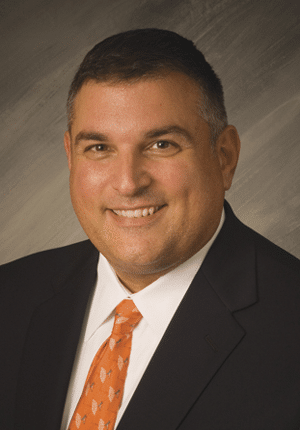3 Possible Resolutions CFPB’s Mulvaney Has for 2018

As I was thinking about the things I want to accomplish personally in the new year, I pondered what the Consumer Financial Protection Bureau’s Acting Director Mick Mulvaney might be thinking about for the direction of bureau’s activities in 2018. As such, I am suggesting three resolutions Mulvaney might consider this year.
I RESOLVE THAT THE CFPB WILL DO WHAT CONGRESS SHOULD HAVE INTENDED IT TO DO.
Protecting consumers — in financial matters in particular — is a noble aspiration and goal, and one the government can do much to promote and achieve. It need be neither partisan nor political; it should be a commonsense exercise. In our firm, we call that approach the “Mama Rule,” meaning don’t do things to people you wouldn’t do to your mother — assuming of course, that you like your mother (if you don’t, then substitute whoever causes you to be on your best behavior).
The CFPB should exercise its authority to enforce consumer financial protection laws when consumers have suffered real and quantifiable harm, and work to improve consumers’ financial literacy. With this resolution, Acting Director Mulvaney shows his intent to redress real and significant consumer harm, encourage the industry to “do the right thing,” and encourage consumers to recognize their need to educate themselves on financial matters so they can make the best decisions they can — for themselves.
I RESOLVE THAT THE CFPB WILL BE FAIR AND CONSISTENT IN THE EXECUTION OF ITS MISSION.
I’ve said many times that a new agency like the CFPB needs time to get on its feet and figure out how it is going to implement its mission consistently. After six years, one might expect the CFPB to be a well-oiled machine, but it’s been hobbled by the politicization of its mission. High-functioning regulatory agencies worry about things like fairness, due process, and justice, and they inculcate those values into their staffs. Those values transcend politics and lay the groundwork for an agency that can implement its mission with little political interference. With this resolution, Acting Director Mulvaney shows his respect for the CFPB’s mission, the importance of due process, and the need to use the appropriate and proportionate tools to redress any consumer harm.

I RESOLVE THAT THE CFPB WILL NOT MAKE MORAL JUDGMENTS ABOUT LEGAL CONDUCT.
Law schools teach that the law is amoral (at least, they did 25 years ago). Not immoral, but amoral. In other words, the law is the law and it is unaffected by shifting morality except through legal authority or action.
The death penalty is a good example; it is the law in many states even though some of those states’ citizens believe the practice to be immoral. The same is true of our consumer financial protection laws. Many products and services are legal even though some may find them immoral (think small-dollar lending).
A concern I’ve long heard from the industry is the CFPB’s affinity for using its unfair, deceptive, and abusive acts and practices authority when the conduct at issue isn’t prohibited by federal statutes or regulations. Arbitration and small-dollar lending come to mind. What turned out to be one of the CFPB’s primary rationales for prohibiting class-action waivers in arbitration agreements is the punitive effect that class-action settlements with large attorney fee awards have on the industry. However, any changes the CFPB made to arbitration were required by Dodd-Frank to be “in the public interest and for the protection of consumers,” and consistent with a study the CFPB was mandated to undertake.
Nothing in the study suggested that consumers were better served by class actions than individual arbitrations. In fact, the evidence indicated consumers tended to fare better in arbitration. So, query how banning class-action waivers is in the public interest and for the protection of consumers. More likely, the rule was the result of a moral judgment that inflicting economic pain on the industry, even unfairly, is better policy than putting cash in a consumer’s pocket.
Obviously, I disagree. The small-dollar rule (SDR), by the CFPB’s own estimation, will eliminate access to credit for millions of Americans. Nevermind that the industry is legal, having been regulated by state law forever, and was created by state legislatures that determined it was in the interest of their citizens to have access to the industry’s products and services.
Consumer advocates have long attempted to substitute their moral judgment on what financial transactions are appropriate for the judgment of the end user who is looking to pay the electric or heating bill. Or, buy cigarettes and beer. It’s really no one’s business. The point is that the SDR reads like a morality play that picks winners and losers and imposes those picks on citizens without regard to whether they may be more interested in paying a bill on time than in someone else’s moral judgments.
With this resolution, Acting Director Mulvaney shows his respect for the determinations of state governments and other federal authorities, as well as the importance of allowing the American people to decide which legal products and services are right for them. Now, before I start getting emails, I’m not opposed to morality in the slightest. I’m just opposed to my government deciding for me what’s moral and what isn’t. I’m also a big believer in consistent application of the law, something moral seesawing does not tend to support.
The CFPB is at a crossroads. I doubt new leadership will undo everything that has come before, but there’s clearly a new sheriff in town that takes a different view of his mission than his predecessor. The fact is that the new sheriff can undo a lot, but a subsequent new sheriff could just redo it at some future date. Eliminating the CFPB’s single directorship in favor of a politically balanced commission structure would decrease the uncertainty that comes with wholesale changes in leadership. Let’s hope Congress does the sensible thing and converts the Consumer Financial Protection Bureau to the Consumer Financial Protection Commission.
Michael Benoit is a partner in the Washington, D.C. office of Hudson Cook LLP. He is a frequent speaker and writer on a variety of consumer credit topics. Michael can be reached at mbenoit@hudco.com. Nothing in this article is legal advice and should not be taken as such. Please address all legal questions to your counsel.














